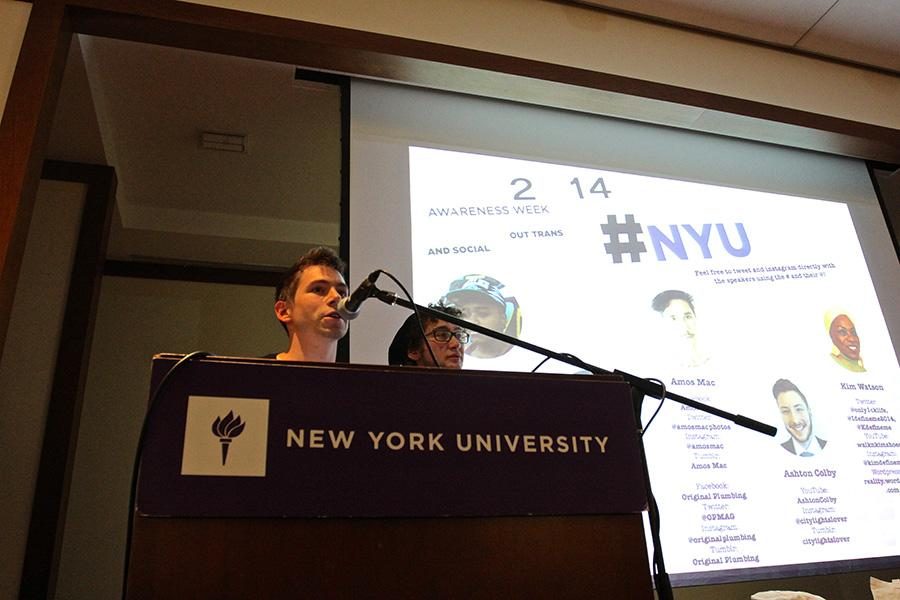Trans Week analyzes social media use
November 19, 2014
NYU’s Trans Awareness Week has officially started and on Nov. 18 the topic of discussion was “Coming Out Trans and Social Media.” Four active members of the trans community gathered in the Kimmel Center for University Life to participate in a panel discussion lead by Sasha Alexander, founder of Black Trans Media.
Amos Mac, founder of trans culture magazine Original Plumbing, said his publication has changed the lives of many trans people.
“With Original Plumbing, I get a ton of emails from people who are thankful and grateful,” Mac said. “People who are in a small town in Middle America, who read the magazine, and they keep it under their beds, and it inspires me.”
Kim Watson, founder of transgender support group Community Kinship Life, said social media has helped her reach out to fellow members of the trans community.
“One of my missions is to help folks before and after transitioning,” Watson said. “I would document every tiny detail of my [Gender Reassignment Surgery] on my WordPress blog to put myself out there to help and motivate the youth.”
Famous trans YouTuber Ashton Colby, who joined the discussion via Skype from The Ohio State University, said even though social media can draw the trans community closer, at times it can be hurtful.
“As large as social media is, there is always going to be a negative outlash,” Colby said. “There are negative comments that I get on YouTube, but for every negative comment I get, I get 10, 20, 50 positive comments.”
Renee Stetson, a cadet at SUNY Maritime College who has served in the armed forces in Afghanistan, said the military is not a safe zone for the trans community. She is using social media to combat the current ban on trans people in the military.
“My big cause is ban of transgender service in the military because my big goal was to become an officer, but I couldn’t because I was transgender,” Stetson said. “I get involved in a lot of activism that moves through social media about ending the ban.”
Stetson said there is a caveat to the social media innovation because a lot of companies are charging users.
“The more and more that social media services become pay-to-play ,the more they are difficult to access for a community that is kind of inherently resource poor,” Stetson said. “I think there are enough business models out there that there are always going to be some other scrappy upstart that you can move to.”
Attendee Michael Formika Jones said he thinks social media is good for public matters, not personal relationships.
“I have an ex-boyfriend who became my ex-girlfriend through our relationship,” Jones said. “I still personally love social media for promotion of things that I do, but I don’t like it for relationships with people, because it’s impersonal.”
Charlie Ferrusi, graduate student at the Global Institute of Public Health, helped organize the entire week of Trans Awareness Week events. He said the discussion about social media for the trans community was a conversation worth having.
“Social media is literally a space for survival, affirmation and liberation,” Ferrusi said.
A version of this article appeared in the Wednesday, Nov. 19 print edition. Email Alanna Bayarin at [email protected].















































































































































